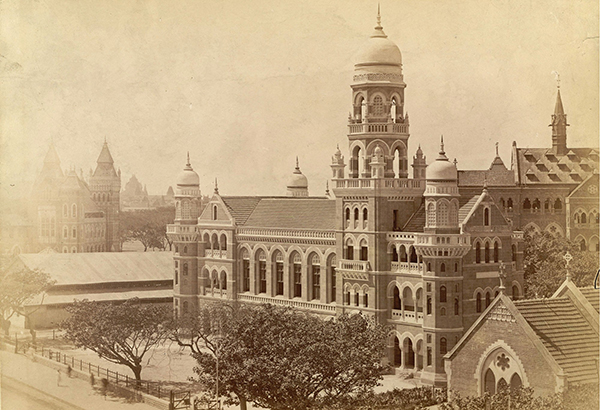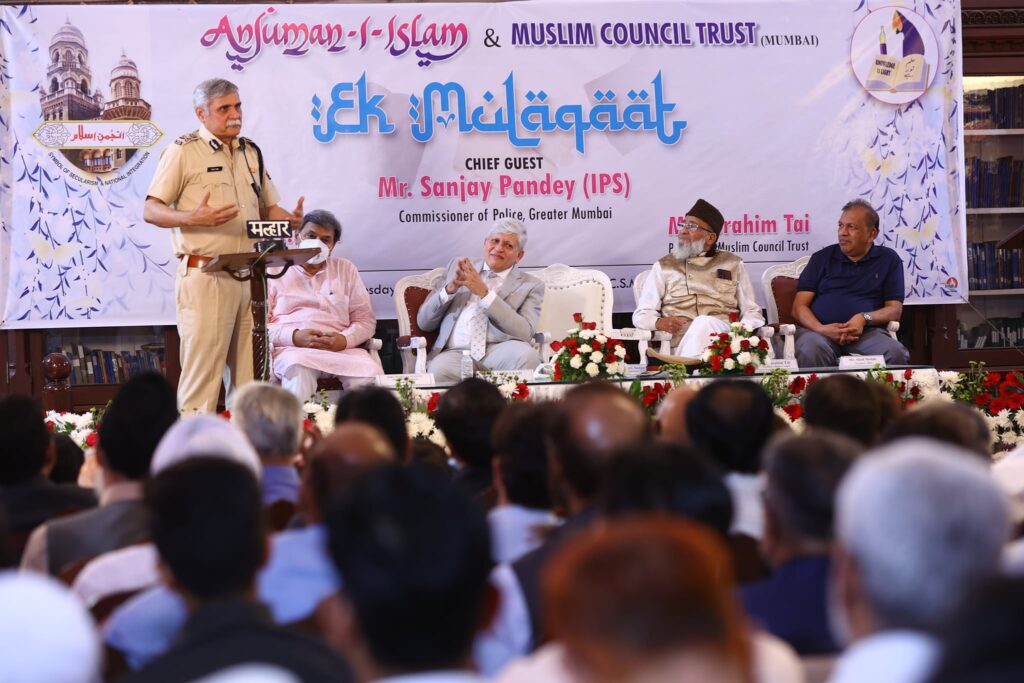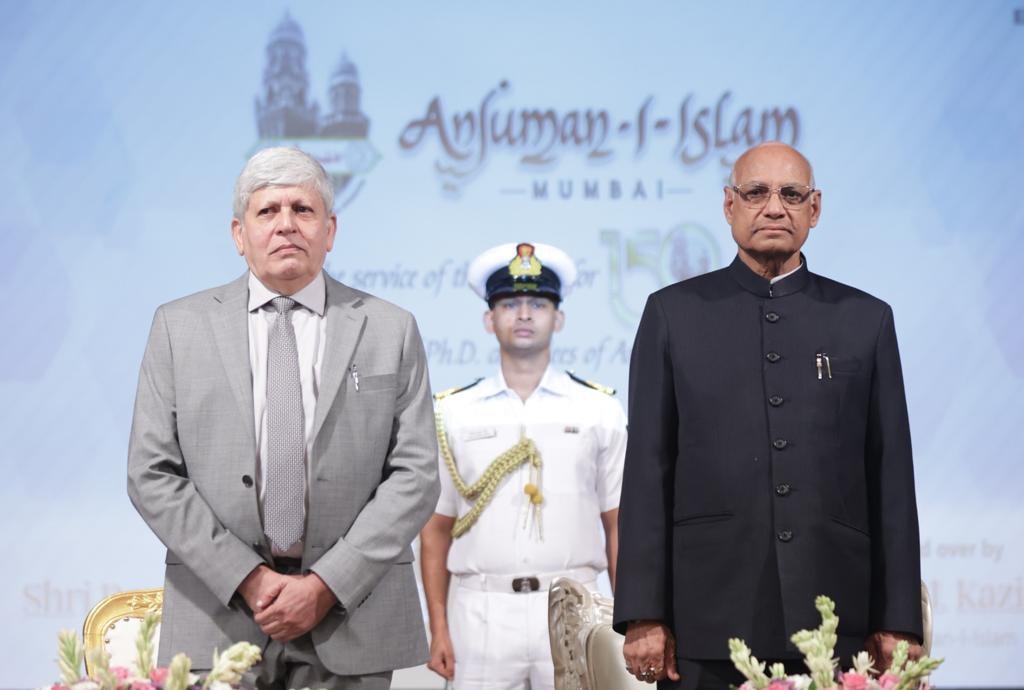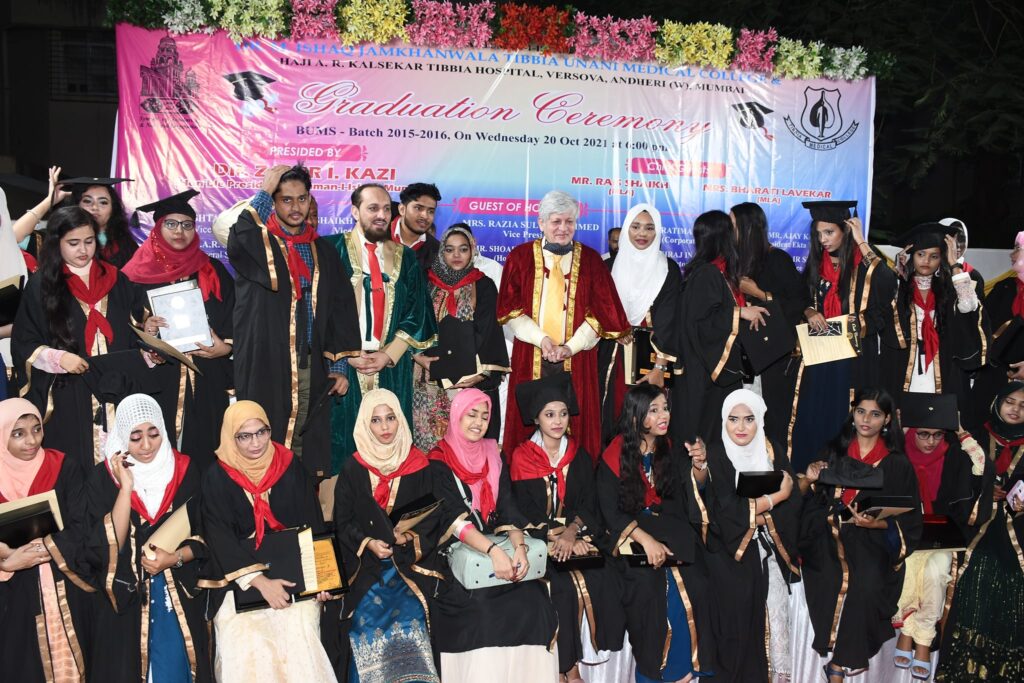Mumbai, MAHARASHTRA:
.webp)
Long before India became the first country to introduce mid-day meals to children in government schools to supplement their nutritional needs and to encourage poor families to send their children to school, Anjuman-e-Islam, a Muslim institution had started the scheme in Mumbai.
Ajmunan-e-Islam ursu school was established some 150 years ago. It was the brainchild of a group of progressive Muslim intellectuals of Mumbai.
The initiative for this was taken by Badruddin Tyabji, the first Indian barrister of the Bombay High Court, Qamaruddin Tyabji, the third president of the Indian National Congress, his elder brother and lawyer Nakhuda Mohammad, Ali Roge, businessman and social activist, Ghulam Mohammad Munshi, The school came up at Babula Tank near Umarkhadi in the then Bombay province and started as a small place.

In 1893, ‘Anjuman-e-Islam’ was shifted to a building opposite Victoria Terminals (presently ‘Chhatrapati Shivaji Maharaj Terminus’) from where it continues to operate.
At that time many facilities were provided to the students coming to study in ‘Anjuman’. The facilities included a mid-day meal comprising boiled eggs, bread, and bananas.
It was established a year before the establishment of ‘Aligarh Muslim University’ (AMU) in Aligarh by Sir Syed Ahmed with the sole motive of providing modern education to Muslims.
‘Anjuman’ school initially ‘only admitted boys and it was much later that it opened the doors to girl students. In 1936, a separate school for girls was also started by the name ‘Saif Tayyabji Girls High School’ on Bellasis Road.
.webp)
This school, which started on 21 February 1874 with three teachers and 120 students, has now transformed into 97 institutions. Today more than 1.1 lakh students are studying right from nursery classes to PhD – are enrolled in its educational institutions. Interestingly, 70 percent of students enrolled are the first ones from their families to receive education.
Anjuman-e-Islam played a major role in India’s freedom struggle. Many people including Moinuddin Harris and Mustafa Fakih of ‘Anjuman’ were sentenced to imprisonment during the freedom struggle. Many policy meetings for the freedom struggle were held on its premises.
‘Anjuman’ has a long history in nation-building.

Today the main administrative office of the organization is located at the same place where the seed of ‘Anjuman’ was sown. Five colleges – two catering colleges, a business-management college, a home science college, and a law college – have been established on the institute’s three-acre campus. In addition, there is a polytechnic, a junior college for women, and two schools in both English and Urdu medium.
The campus also has a large library and a research center.
Sir Karimbhoy Ibrahim, Haji Yusuf Haji Ismail Sobani, Justice A. M. Qazi, Justice Faiz B. Tayyabji, Sardar Sir Suleman Kulsoom Mitha, Hussain B. Tayyabji, Usman Sobani, Mohammad Haji Ahmed, A. I. Maskati, Hadi C. Tayyabji, Saif F. B. Tayyabji, Akbar A. Pirbhoy, A. K. Hafeez, A. R. Persons like Antulay, Moinuddin Harris, Dr. M. Ishaq Jamkhanwala, Sami Khatib made special efforts. Presently Dr. Zaheer Kazi is its President.
`Anjuman’ has two main objectives, first – ‘to provide quality education at minimum cost’ and second – ‘to prevent any student from being deprived of education due to lack of funds’
More than 50 percent of the students in ‘Anjuman’ come from economically weaker sections. Anjuman has created a ‘Special Zakat Fund’ to enable these students to complete their education. The economically weaker students are given a 50 to 100 percent discount in education fees.

The Anjuman is inspired by Maulana Abul Kalam Azad’s message that ‘Education given from the heart can bring revolution in the society’, the organization has been doing this work. The ‘Anjuman’ has more than 40 percent girls on roll.
Today the institution offers courses like Engineering, Medicine, Architecture, Pharmacy, Hospitality, Catering and Hotel Management, Law, Business Administration, Home Science, and Teacher’s Training.
Some, 3000 employees work in the Anjuman institutions. In the year 2000, `Anjuman’ was awarded the ‘Best Educational and Social Institution in Maharashtra’ by the State government. Recently the institution has been awarded the ‘Sir Syed Award of Excellence’ of AMU, Aligarh University.
The alumni of `Anjuman’ are today working in high positions in various fields like business, technology, arts, sports, media, medical science, and politics in many countries. Former Chairman of Fortune Company and Indian Oil Corporation, M.A. Pathan, former Chief Minister of Maharashtra A. R. Antulay, famous actor Dilip Kumar, Ismail Merchant of `Merchant of Merchant Ivory Productions’, former Deputy Editor of `Illustrated Weekly’ Fatima Zakaria, former editor of `Mumbai Mirror’ and `Sunday Times’ Farida Naik and famous cricketer Salim Durrani. Celebrities have been alumni of ‘Anjuman’.

Dr. Zaheer Kazi, current president of ‘Anjuman’, says, “We are constructing a state-of-the-art building in the Sabu Siddiqui College campus in Byculla. There will be an incubation center as well as post-graduation and PhD courses taught there. “Besides, there will also be an integrated center.”
Apart from this, a health education campus will be built in Kalyan-Bhiwandi or Panchgani, in which MBBS courses, Dental College, College of Nursing, Physiotherapy, and Homeopathy will be started. Pharmacy, law college, degree college, and high school for girls will be started in the Solapur campus. Also, land acquisition for catering, pharmacy, and high school-cum-college in Panaji, Goa is in the final stages.
He said, “’Anjuman-e-Islam’ has partnered with MIT University in Cambridge, England, and its five Faculties of Engineering, Master of Business Administration (MBA), Pharmacy and Elementary Education. In addition, ‘The Kalsekar School of Pharmacy’ (Panvel), and The Maryland School of Pharmacy’, Baltimore, (Washington DC) have been approached for collaboration with Anjuman-e-Islam. Philadelphia’s ‘Temple University’ asked ‘A. of Anjuman-e-Islam’ for cooperation. R. Antulay College of Law has also been contacted.”
‘Anjuman’ has 97 educational institutions including schools and colleges. These include pre-primary schools (15), primary schools (15), secondary schools (20), junior colleges (10), polytechnics (4), degree colleges (15), other institutions (10), proposed institutions (2), Consists of hostels, auditorium (3), support units (2) and orphanage (2).
source: http://www.awazthevoice.in / Awaz, The Voice / Home> Story / by Chaya Kavire, Pune / November 22nd, 2023








